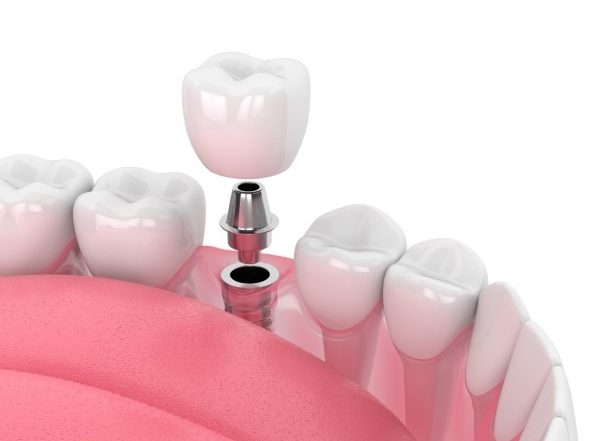Patients have been making the switch to dental veneers since their invention in the 1920s. While the porcelain structures were initially invented to benefit actors on screen, their future of becoming a viable alternative for cosmetic and health issues in the realm of oral care was also on the rise.
Now, people look to veneers to correct a variety of different things, and they’ve become wildly popular. Veneers can take a stained, imperfect, or chipped smile to new heights, provide a complete makeover, and restore your confidence in your smile in one procedure.
If you’ve been considering dental veneers, there are a few things to take into consideration and speak with your dentist about before pulling the trigger. It’s easy to be a great candidate for porcelain veneers – if you identify with everything below, you’ll be in great shape to get them!
- You Take Good Care of Your Teeth and Have Great Oral Health
Your teeth certainly don’t have to be perfect in order for you to be a candidate for veneers, but the teeth and gums do have to be relatively healthy in order to ensure a positive outcome.
This is the case not just for veneers, but for any cosmetic dentistry procedure. You have to take care of your oral health before you can take care of the aesthetic side of things.
However, there are options – if you haven’t always taken care of your teeth, a dental professional will be able to work with you to restore what has eroded or been damaged, and it’s highly likely that the option of going with dental veneers will still be available.
This is entirely dependent on how much work needs to be done, how much damage there is to the teeth and gums, and whether or not it can all be restored enough to support dental veneers. Chances are, as long as you haven’t wreaked complete havoc on your smile, you’ll be just fine.
- If Your Teeth Are Relatively Straight, and You Just Need a Little Tweaking
Just like the section above, your teeth being crooked or having a misaligned bite isn’t going to make or break your veneer candidacy indefinitely. Crowding and misalignments can be fixed prior to placing veneers with orthodontic treatment, and isn’t the end of the world – it’s just important to be prepared to accept that this may be the route you need to take. This route, however, will be worth it for your new smile!
Veneers can help to correct a slightly crooked smile, but only within reason. Severe misalignment and crowding can put too much pressure on the porcelain veneers, and while they are quite durable, they may become damaged or cracked over long periods of time with too much-applied pressure.
For this reason, you’ll want to make sure your dental specialist outlines all of your options and your best course of action before you have those veneers bonded and placed.
- You Don’t Have too Many Bad Habits, Like Clenching and Grinding Your Teeth
Consistent clenching, grinding, and any unnecessary pressure on the veneers will cause them to crack, or become damaged. After paying for the procedure and having your veneers placed, the last thing you’ll want to do is damage one or more of your porcelain veneers, and have to start from scratch.
There are many other habits that have the potential to damage your veneers as well. If you already participate in these habits and can kick them before your veneers are placed, this has the potential to lengthen their lifespan, and keep them looking immaculate. These bad habits can include:
- Using your teeth as tools, such as opening bottle caps with them, etc
- Eating ice cubes
- Chewing and biting your nails
- Often eating very hard, crunchy foods
- Your Teeth Can’t Be Whitened
If your teeth are severely stained and no amount of whitening treatments will help brighten them once again, sometimes veneers are the most viable option. While whitening treatments are extremely effective, and staining can be kept at bay by brushing with an approved whitening toothpaste, extremely dark stains will not respond to these surface-level treatments.
Porcelain veneers do not remove stains, but they do effectively conceal them. This means that once your veneers are placed, your main job will be ensuring the porcelain is kept clean and immaculate!
- You’ve Retained a Significant Amount of Tooth Enamel
Due to the fact that veneers adhere to your enamel when they are placed, not having enough will become problematic. Before placing the veneers your dentist will be removing a small amount of enamel to create adequate room for the porcelain, but the lower layer will need to remain.
Without this enamel, the veneer will not have a proper supporting surface to be bonded to, and therefore will not be stable on the tooth. This can result in complications, along with not being able to attach the porcelain veneer in the first place.
Chances are, if you’ve kept yourself in good oral health, this shouldn’t be an issue or a roadblock in the way of your procedure. Even if you feel as though you have damaged some enamel that can’t be revived, there are ways to boost the mineral content of your remaining enamel and restore it in that sense.
- You Have Cosmetic Issues You Want to Correct
We all have small annoyances when it comes to our teeth, and issues with their appearance. Even if these complaints can be fixed with a few small tweaks, we still get self-conscious of them.
Small issues such as a few stained teeth, a few chipped teeth, or a crooked smile can easily be fixed with porcelain veneers. The benefit of using veneers to hide all of these imperfections is having to only go through one treatment, instead of three individual ones to repair each issue as an isolated case.
Veneers can be a one size fits all approach and solution to these small cosmetic issues.



